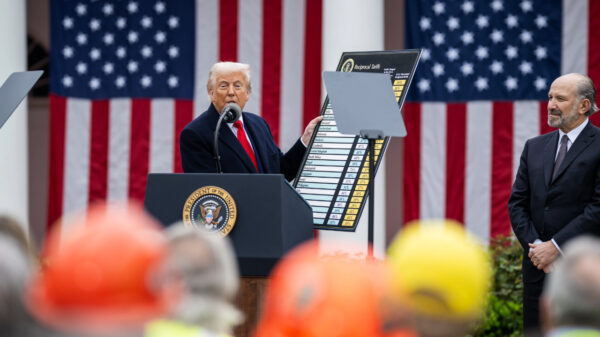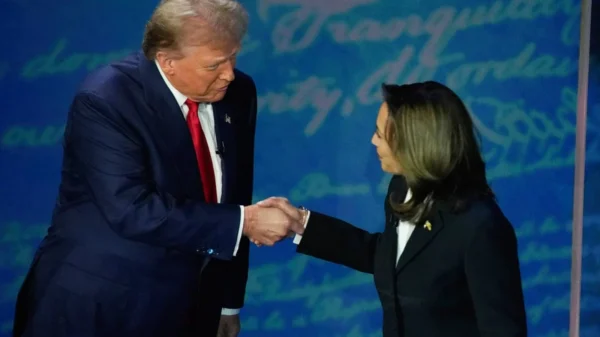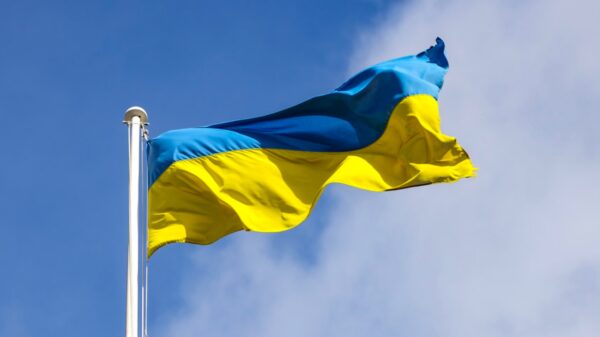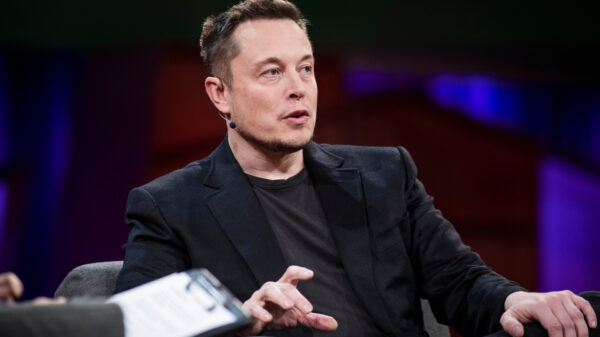Comment Editor Marino Unger-Verna reflects on being a German-American citizen in 2020.
I am an American.
I hold an American passport. I vote in American elections. I lived in the U.S. for ten years, grew up there, made my first friends there. We are products of our experiences, and while I have grown much since my time there, I will forever in part be defined by those ten years, that culture, those values.
It wasn’t until a few years after I left America, returning to the country of my birth with my parents, that I realised some things about the nation I had left behind. In Berlin, the people I would meet were of every ethnicity, every conceivable background. This never shocked me – I am lucky to have been raised in a household that accepted all people, no matter where they came from – but in hindsight, I am surprised that it didn’t.
When I think back to my time in America, I do not remember many non-white faces. There were some exceptions to this, but they were exceptions nonetheless. Not all towns are the same, and there may have been more who I simply didn’t know; but I was a child, my social circle extending only a little further than my school. And almost all I can remember is white faces.
I am American, and I am German. Reaching maturity in Germany brought with it many new experiences, and shaped me further. I learned about the Third Reich, about Adolf Hitler and the crimes he had committed against countless innocent people. I, alongside everyone else growing up in Germany, learned to remember our collective mistakes, so as to never repeat them.
I have now lived in Europe for as long as I lived in America. 12 is a tricky age at which to uproot one’s life – old enough to remember the place you’re leaving, young enough to adapt to your new home quickly. And I adapted. I learned a new language, I made new friends, I familiarised myself with new cultures. All the while, I began to notice small things about my old home, things that bothered me in ways I couldn’t quite put into words. The way we had been made to say a pledge of allegiance to our country’s flag each morning – technically optional, but nothing a grade school child would ever think to question. The guns, sold in the same stores where families would buy groceries and kids would buy toys or video games. The new history I began to learn at school – not about American conflicts, American liberation and freedom, but about the rest of the world, the rest of its people.
I am an American, and I was quick to become disillusioned. When Donald Trump was elected president in 2016, I was shocked, but somehow unsurprised. When he blamed “many sides†for violence at Charlottesville a year later while a KKK leader pledged to “fulfil the promises of Donald Trump,†I was horrified, but a part of me never expected him to do anything else. And then came the death of George Floyd.
Half an hour ago, I stood in my living room and watched as our president gave a speech in the Rose Garden of the White House. In a separate window, CNN showed a feed of the protests occurring just meters away from where Trump was standing, speaking of his duty, the oath that he swore when he assumed office. As he swore to deploy “thousands and thousands of heavily armed soldiers, military personnel and law enforcement officers†across the country, I saw a flash-bang grenade go off amidst a crowd of protesters, holding their hands up and chanting, “Don’t Shoot.†Our president gestured at the camera before him, and said: “America is founded on one rule of lawâ€. As he uttered those words, a man in a red hoodie retreated from an advancing line of police officers in riot gear with a news crew. He was wearing a mask – whether to protect himself from COVID-19, tear gas, or identification, I do not know – looked into the camera, and spoke.
He said, “Look at this, are you seeing this? We aren’t doing anything. We aren’t doing anything.â€Â
MAGA. Make America Great Again. Donald Trump’s chiefest of slogans. It’s on hats, on shirts, and it can be heard at each one of his rallies.
The question, “When was America great?†is not a new one, but it is an intelligent one. The people who ask it are not arguing that the United States has never done anything right. They are not arguing that they hate their nation and everything it stands for. They are arguing against the idea, embedded in the minds of so many Americans, that our country is perfect, infallible, the “greatest nation on Earth.â€
America was built on the back of slave labour. Colonists drove American natives out of their homes again and again until they had to fight tooth and nail for survival. We have imprisoned Japanese-American citizens for no other reason than the colour of their skin. We have done the same to the young children of Mexican refugees, separating them from their parents to such an effective extent that some of them will never, ever be able to recover from the trauma. What is so great about that? Why is it so hard for us to look forward and change things?
Now more than ever, America does not need to return to its past, glorified through the foggy lens of time and self-aggrandisement. America needs to move forward – acknowledge its wrongs, and work to right them. I am American, and I am German. I know what it is to ignore my country’s mistakes, and I know what it is to address them.
It is never easy to look at oneself in the mirror without blinking. It is never easy to acknowledge one’s privilege, the ease with which some thrive in a system deadly to others. It is never easy, but it is necessary. I hope that, if anything can come of what is happening now – all the pain that people are feeling, pain that unlike so, so many others I will never suffer from or truly be able to understand – America will finally take a long, hard look into that mirror. I will still be an American when it does.
Previously Editor-in-Chief of Roar News. Best Interview, SPANC 2022. Classics with English BA student, graduating Summer 2022. Perpetually caffeinated.



















